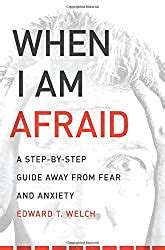A Quote by John C. Maxwell
There are two kinds of pride, both good and bad. 'Good pride' represents our dignity and self-respect. 'Bad pride' is the deadly sin of superiority that reeks of conceit and arrogance.
Quote Topics
Related Quotes
In the scriptures there is no such thing as righteous pride. It is always considered as a sin. We are not speaking of a wholesome view of self-worth, which is best established by a close relationship with God. But we are speaking of pride as the universal sin, as someone has described it. . . . Essentially, pride is a "my will" rather than "thy will" approach to life. The opposite of pride is humbleness, meekness, submissiveness, or teachableness.
The vice I am talking of is Pride or Self-Conceit: and the virtue opposite to it, in Christian morals, is called Humility...According to Christian teachers, the essential vice, the utmost evil, is Pride. Unchastity, anger, greed, drunkenness, and all that, are mere flea bites in comparison: it was through Pride that the devil became the devil: Pride leads to every other vice: it is the complete anti-God state of mind.
Just as meekness is in all our virtues, so is pride in all our sins. Whatever its momentary and alluring guise, pride is the enemy, "the first of the sins." One reason to be particularly on guard against pride is that "the devilish strategy of Pride is that it attacks us, not in our weakest points, but in our strongest. It is preeminently the sin of the noble mind." Not only of the noble mind, but also of the semi-righteous.
Give people pride and they'll live on bread and water, bless their exploiters, and even die for them. Self-surrender is a transaction of barter: we surrender our sense of human dignity, our judgement, or moral and aesthetic sense for pride. If there is pride in being free, we are ready to die for liberty. If there is pride to be derived from an identification with a leader, we grovel in the dust before a Napoléon, Hitler or Stalin and are ready to die for him. If there is a distinction in suffering we search for martyrdom as for hidden treasure.
We modern egalitarians are tempted to the primal sin of pride in the opposite way from the ancients. The old, aristocratic form of pride was the desire to be better than others. The new, democratic form is the desire not to have anyone better than yourself. It is just as spiritually deadly and does not even carry with it the false pleasure of gloating superiority.
I believe in pride of race and lineage and self: in pride of self so deep as to scorn injustice to other selves; in pride of lineage so great as to despise no man's father; in pride of race so chivalrous as neither to offer bastardy to the weak nor beg wedlock of the strong, knowing that men may be brothers in Christ, even though they be not brothers-in-law.




































